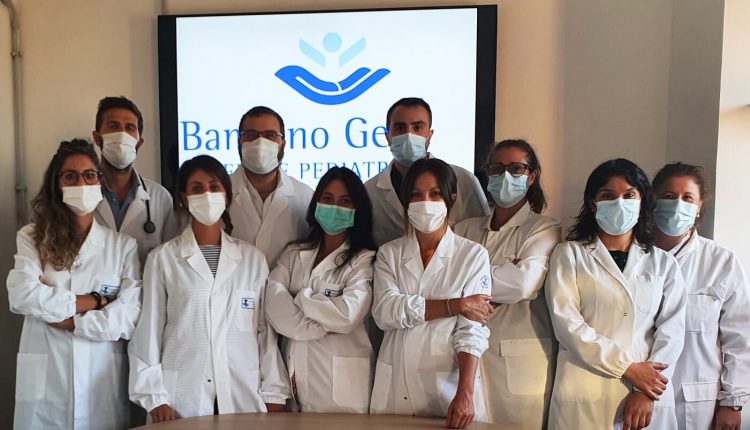
COVID-19, discovered the Multisystem Inflammatory Syndrome activation system
Multisystem Inflammatory Syndrome associated with COVID-19: initially confused with Kawasaki syndrome, this disease is called MIS-C.
COVID-19, The difference between the Multisystem Inflammatory Syndrome and the Kawasaki syndrome
Discovered the mechanism that triggers severe inflammatory syndrome in children with COVID-19. Initially confused with Kawasaki syndrome, this systemic inflammatory disease caused in children by COVID-19 infection is called MIS-C (Multisystem Inflammatory Syndrome in Children).
Researchers of the Bambino Gesù Hospital have now been able to identify its immunological profile and recognizes how it works. The research carried out in collaboration with the Karolinska Institutet in Stockholm, opens the way to specific tests for early diagnosis and targeted treatments. The results have just been published in the scientific journal CELL.
Multisystem Inflammatory Syndrome, the premises of research
At the beginning of the COVID-19 pandemic, children seemed to be almost immune to the consequences of the new coronavirus.
Going on, however, it became evident that they too, although in a less serious way, could get sick with COVID-19. In some cases, unfortunately, children can even develop a severe form of systemic inflammation, Multisystem Inflammatory Syndrome, a new disease that can occur after contracting the coronavirus.
Young patients with MIS-C show vasculitis (inflammation of blood vessels), heart and intestinal problems and a systemic increase in the inflammatory state. These characteristics are partly in common with another vasculitis – Kawasaki syndrome– which initially suggested a causal link between Kawasaki syndrome and SARS-Cov2 infection.
The CACTUS study explained the mechanism of the Multisystem Inflammatory Syndrome
The study ‘CACTUS – Immunological studies in children affected by COVID and acute diseases’ was developed by doctors and researchers of Bambino Gesù Hospital during the health emergency to try to understand the COVID-19 disease in the child.
The COVID-19 Center of Palidoro, the General Pediatrics group that in recent years has been dedicated to the study of Kawasaki syndrome, and the Clinical Immunology and Vaccinology group of the University Hospital Paediatric Department have collaborated in the research.
101 children were involved, of which 13 with COVID that developed the multisystemic inflammatory form, 41 with COVID, 28 with Kawasaki syndrome occurred in the pre-COVID era and 19 healthy.
The study of Bambino Gesù Hospital: the results
In both diseases, Kawasaki and Multisystem Inflammatory Syndrome (MIS-C), an alteration in the levels of cytokines (inflammation mediators) involved in the immune response were detected, but with differences: for example, interleukin 17a (IL-17a) was found to be particularly increased in children with Kawasaki syndrome but not in those with COVID-19 and MIS-C.
Compared to children with Kawasaki syndrome, patients with COVID developing Multisystem Inflammatory Syndrome have been found to have a high presence of autoantibodies, i.e., antibodies directed against particular portions of cardiac tissue or substances of the body itself, which act against two specific proteins (endoglin and RPBJ).
These autoantibodies can determine the vascular and cardiac damage typical of MIS-C. Also from a cellular point of view, substantial differences between the two pathologies have emerged. Children affected by COVID, in fact, have a particular type of T lymphocytes (a subtype of white blood cells for the defence of the body) with impaired immune function compared to children with Kawasaki disease.
This alteration is the basis of inflammation and the production of autoantibodies against the heart.
Prospects of researches on Multisystem Inflammatory Syndrome
The different indicators identified between the two diseases have made it possible to clarify the immunological mechanisms responsible for their development and will allow in the near future to develop specific laboratory tests to arrive at a certain and early diagnosis.
Monitoring T lymphocytes and the spectrum of antibodies in children affected by COVID-19 will allow diagnosing early those patients who are at risk of developing a form of MIS-C.
“These results represent an important discovery also for a more accurate and evidence-based choice of protocols for the treatment of systemic inflammation related to SARS-CoV-2 infection and Kawasaki disease“, explains Dr Paolo Palma, head of Clinical Immunology and Vaccinology of the Child Jesus and the study.
Therapies for the Multisystem Inflammatory Syndrome
Research results indicate that high-dose immunoglobulins should be used to limit the effect of autoantibodies, anakinra (an immunosuppressive active ingredient that blocks interleukin-1 receptors) and cortisone should be used to treat children with the Multisystem Inflammatory Syndrome at an early stage to block inflammation secondary to vessel damage.
In contrast, the use of tocilzumab (anti-IL6) and TNF-a blocking drugs is not recommended in pediatric patients. For patients with Kawasaki, the data suggest for the first time the potential efficacy of an IL-17 blocking drug (secukinumab) to control the inflammation underlying this disease.
READ THE ITALIAN ARTICLE
READ ALSO
SOURCE

